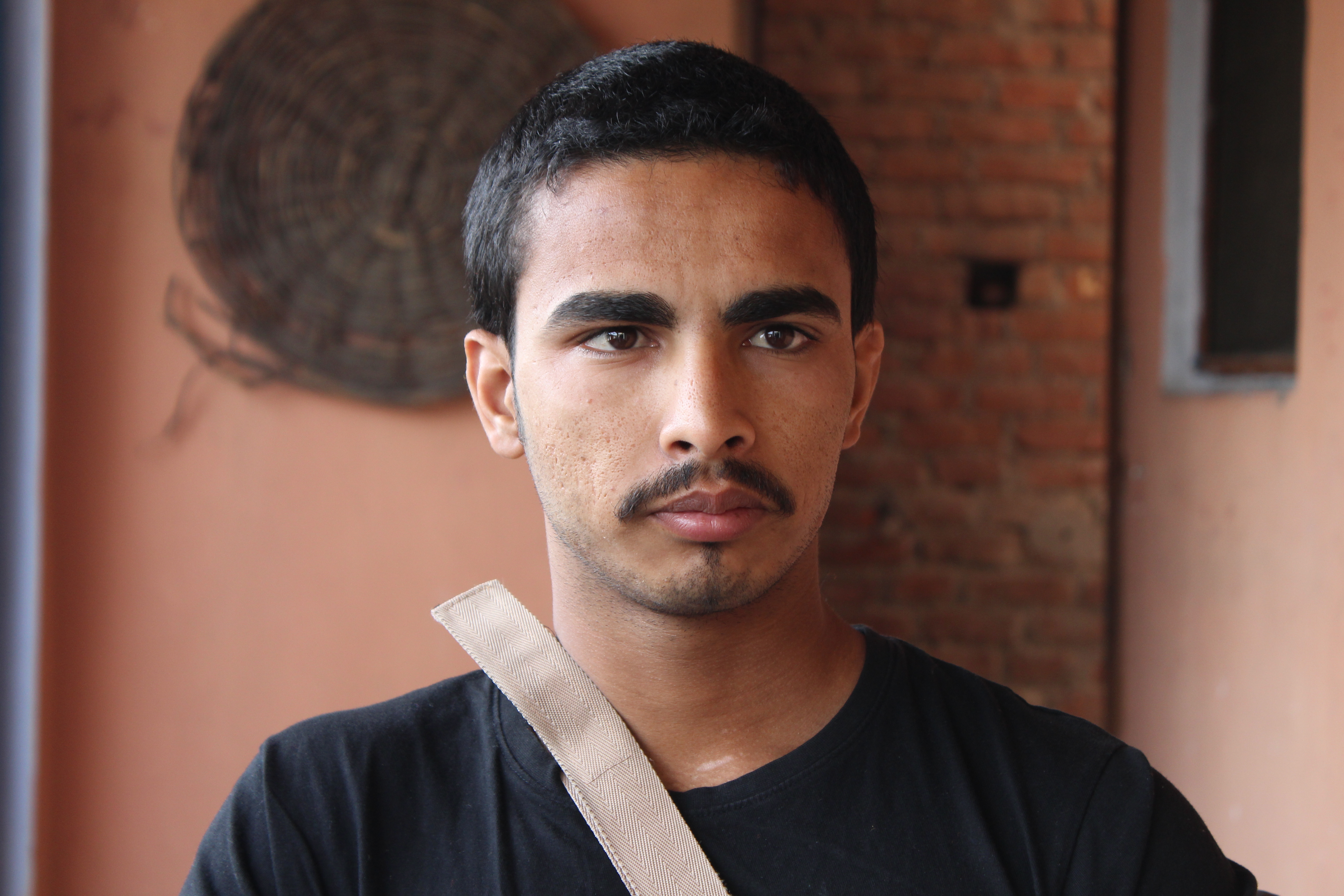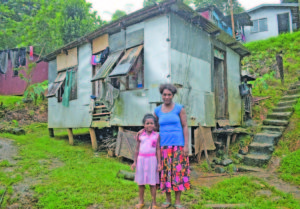In June 2015, journalist Jagendra Singh was set on fire by a minister’s henchmen in Shahjahanpur, Uttar Pradesh in India.
A week later, he died of his injuries.
The case never went to trial and none of the accused were punished.
Jagendra had been reporting on the corruption of several powerful ministers, including former minister Rammurti Singh Varma.
At the height of the protests following his death, Jagendra’s family met with then Chief Minister Akhilesh Yadav and received a monetary compensation of Rs 3 million (US$41,690) from the state government of Uttar Pradesh.
Their key demand, though – a CBI inquiry into his death – was not met by the state.
Barely six months later, the family mounted a sudden U-turn. Jagendra’s younger son, Rahul Singh, withdrew the petition that he had sent to the Supreme Court the night before it was heard, effectively ending any cases made on their behalf.
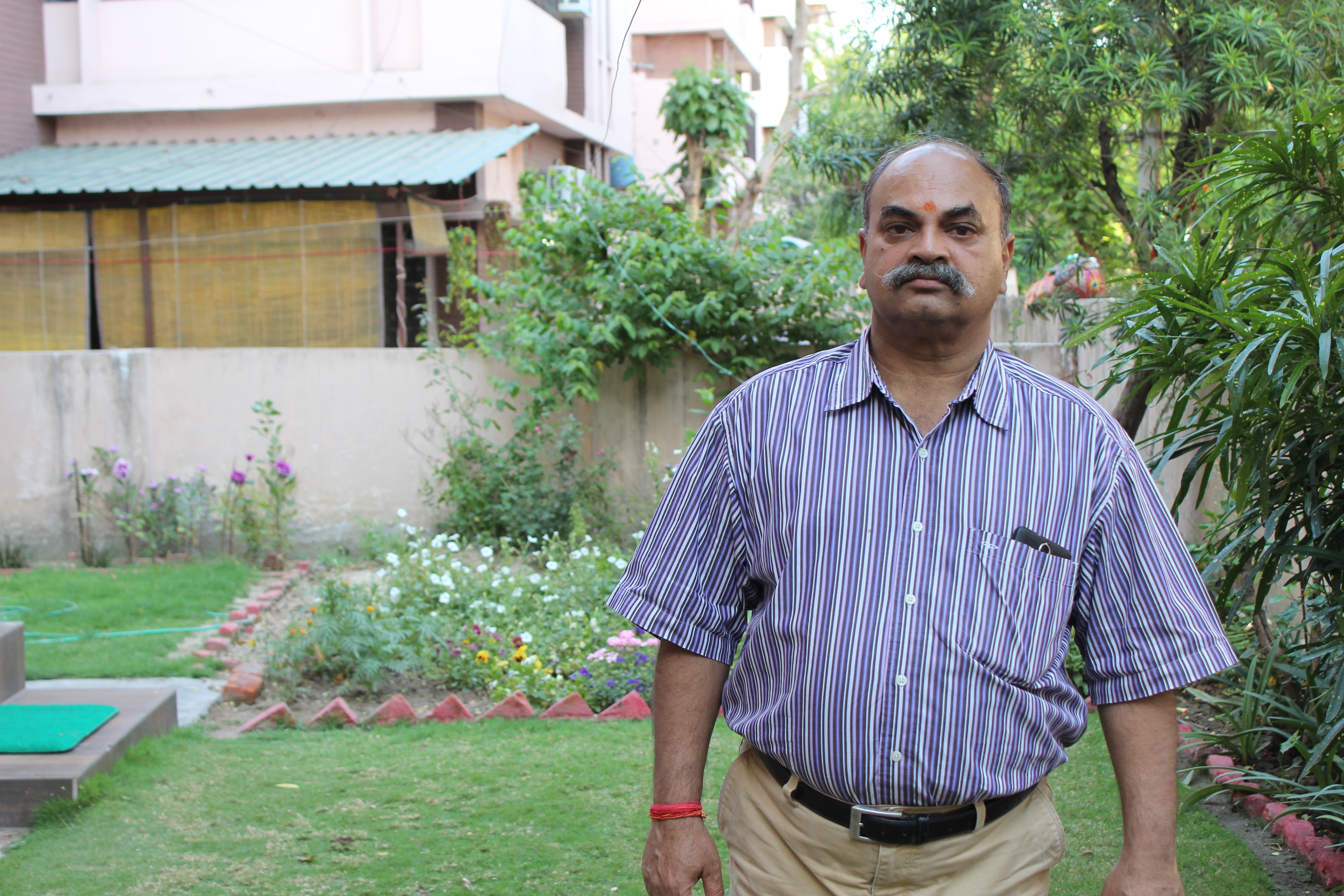
“He had been sending me messages that he was under immense pressure, that he was going into hiding, but I did not expect that he would suddenly withdraw at the last moment. The judge was predictably annoyed and we were left red-faced in court,” said Mudit Mathur, senior journalist with Tehelka, who impleaded himself in a similar petition before the court.
Mathur attempted to continue the second case in the Supreme Court in which he had impleaded himself. But with the family withdrawing the petition, that case too was dead, since Mathur had no locus standi.
For the first time, the facts of the case come tumbling out.
In Khutar, Rahul is pensive as he reminisces about that time.
The family, especially his mother, faced significant pressure from relatives, neighbours, friends and even some officials to move on from whatever had happened.
“They started to target mummy that whatever has happened has happened and to make a compromise. Mummy got scared that this is a small family and something might happen to her children. Due to pressure from mummy, we agreed to a compromise,” he said.
When they met Minister Rammurti Varma, the man claimed that he was framed.
Rahul said: “I told him in that case why don’t you let the enquiry take place? If you are innocent, then you will go free. But he said no, whatever has happened with your father has happened and I do not want your lives to be ruined. I will take responsibility for you. I will ensure that your sister is married well. As long as I am alive I will take good care of you.”
The minister then promised to be in their debt if the family forgave him.
When asked why Rammurti would still need to ask for forgiveness if he was innocent, Rahul laughed.
“Only he can answer this. I told him a number of times that at least the others who were involved should be caught – the ones who attacked my father, the ones who filed a false case against him. He said he would ensure a probe takes place and that he is innocent,” he said.
However, Rahul maintained that the minister was guilty “in one way or another” because the police would not have gone to his father’s house if a false case had not been made.
Before his death, Jagendra had a fake attempt to murder complaint registered against him. This would enable the police to arrest him and silence his reports on Rammurti’s corruption.
Ironically, a year after Jagendra’s death, the police acknowledged that the case filed against him was indeed false.
Instead of explaining why a false complaint had been lodged against Jagendra Singh, the minister asked the family to withdraw the First Information Report (FIR), that would have allowed the police to commence the investigation of the journalist’s death.
His brother and uncle signed some papers given to them by the minister and they left with Rs 3 million.
UNEASY CONSCIENCES
While the Singh family, on the surface, appears to have made their peace with the decision to make the compromise, all is not well.
Regret and unease is evident. Both brothers are married and the elder one is a father now.
The money from the state has been used to build a larger home and buy a small car.
“We were left with little choice. I was scared for the lives of both my grandsons. By then all our relatives and family members pushed us toward making a compromise and we were left with little choice. I want the killers of my son to get punishment.”
But the stain of guilt, of having betrayed a courageous father, is yet to be washed off.
“Sometimes I feel like we should have fought the whole fight to the end,” said Rahul Singh. “But at other times I feel whatever happened was a good thing. Because initially there were thousands of people standing with us, then slowly it became 500, then that became 150 and then 100. So in this fashion people left, they sold out, those who were with me too sold out. Those who were asking me to fight turned around and asked me to compromise with the Minister. Then finally the five to six people who were left standing beside me were putting pressure on me to compromise so I thought, what can one do when surrounded by traitors. Anything can happen to us. So when I think of that I feel what I did is right.”
Brother Rajan also feels pricked by his conscience. “Yes I do feel bad,” he said when asked about the compromise. “My Papa was a brave man and we let him down.”
Mother Suman Singh tells herself to be practical, for her children’s sake.
“The man of the house is no more, what can one do?” She asked. “I did not see any other option and I was very afraid for my children,” she said.
Sumer Singh, Jagendra’s father who passed away in January, told the collaboration in 2018 about the multiple threats issued to the family. “Even now I can’t sleep the entire night, with the fear, someone will come to take away or kill my family members. I told them, go sleep inside, let them kill me instead. They threatened us a lot, far too much. Even I was shaken,” he began to sob.
“They are kids, what all they had to undergo,” he said. “We were left with little choice. I was scared for the lives of both my grandsons. By then all our relatives and family members pushed us toward making a compromise and we were left with little choice. I want the killers of my son to get punishment. That is important,” he said.
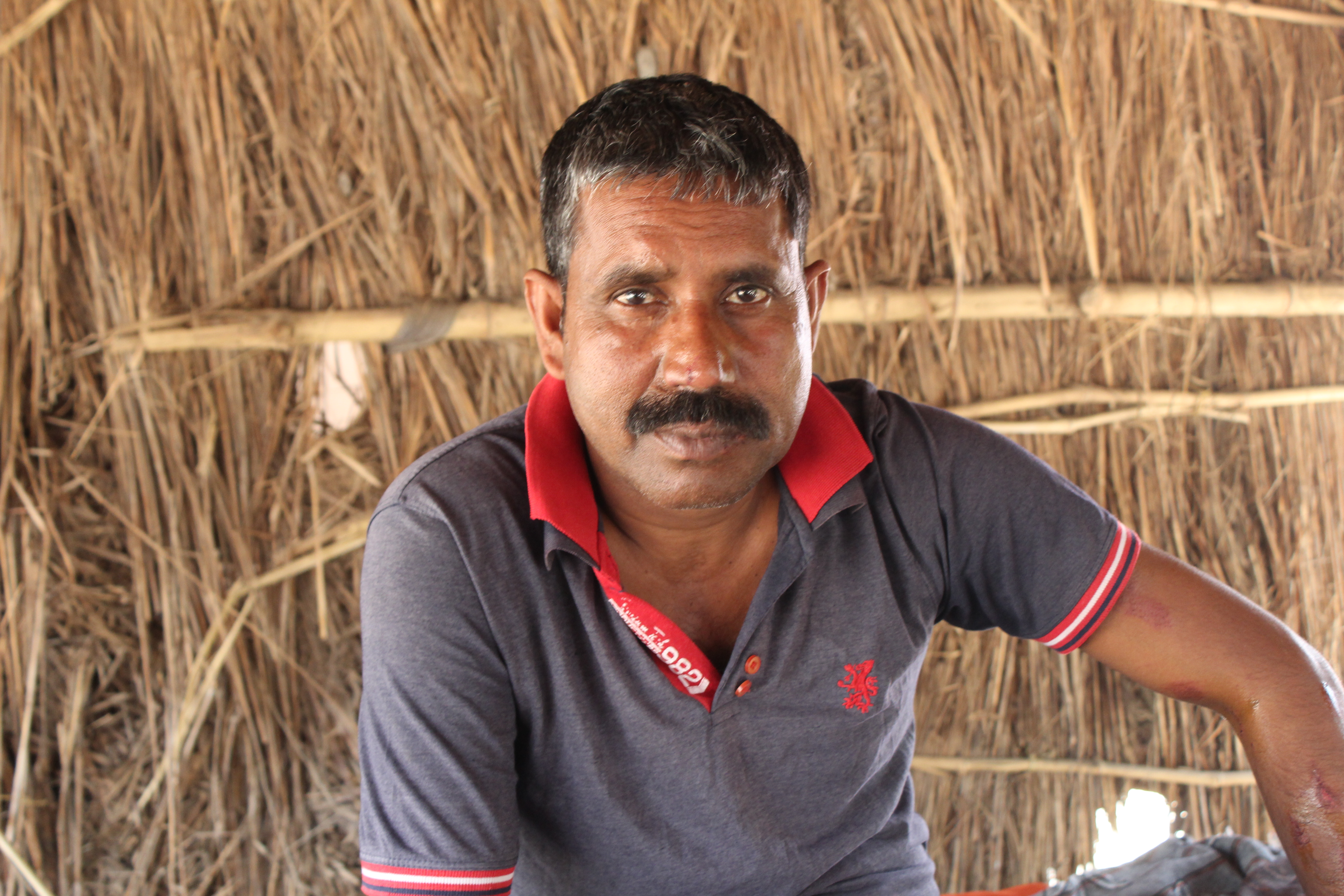
Jagendra’s sister’s husband Ajay Singh, who had fixed the meeting with the Minister, said that he was convinced there was no foul play in Jagendra’s death.
“The neighbours told us that the police never went inside his house,” Ajay said. “For whatever reasons or pressure, he (Jagendra) had set himself ablaze. From what information I got I felt there was no external hand in this, that it was a result of Jagendra’s anger.”
Ajay though admits that he organised a meeting with the Minister and was present at the “compromise” – although he repeatedly denied any money deal.
“No there was no talk of any money with the Minister,” he said. “But yes, I made a request to the Minister – these are very young children, you have to take care of them, you have to help them set their economic situation right and become stable,” he added.
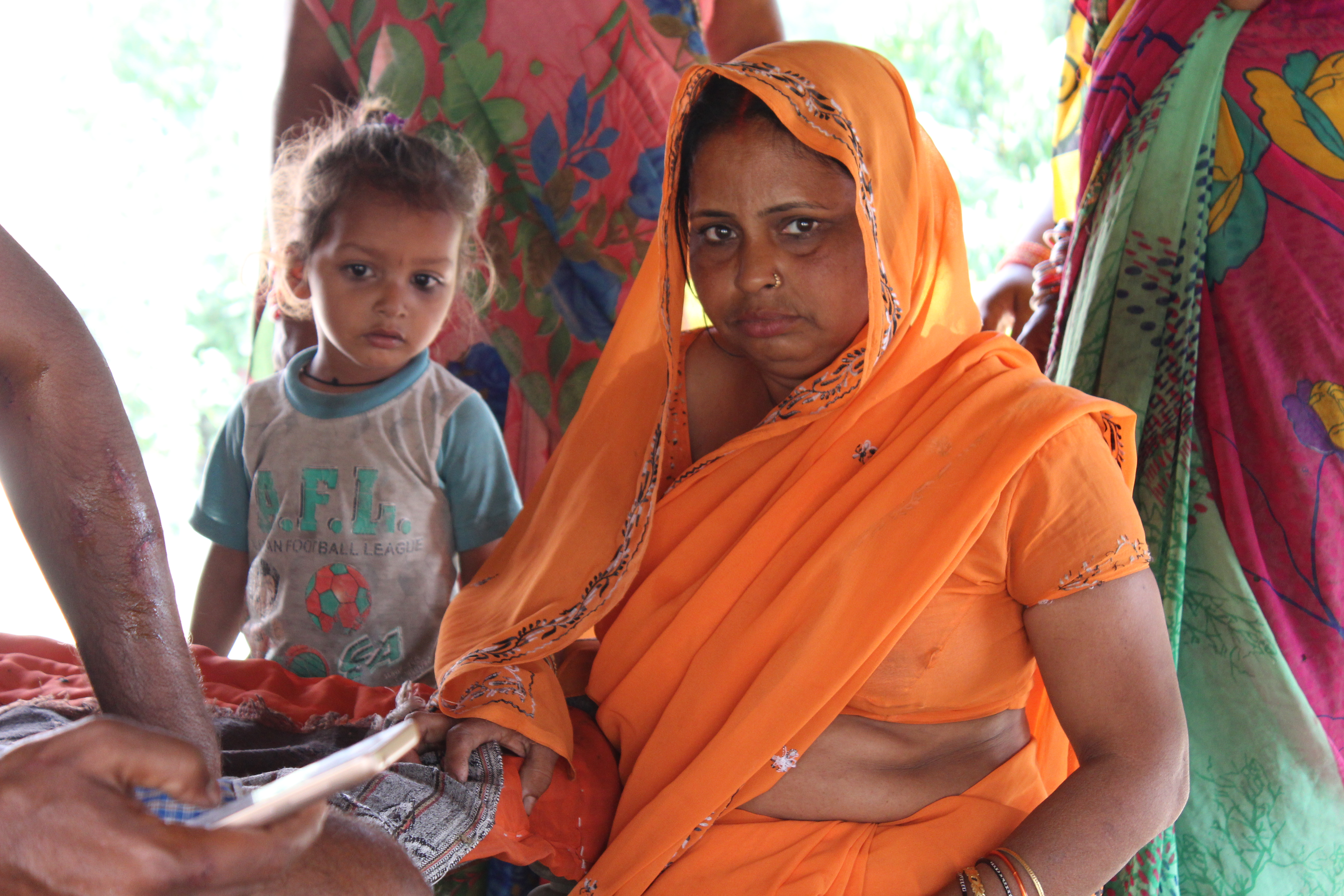
His wife, Jagendra’s sister Lovely though is not as convinced as he is that the Minister is entirely innocent.
“The compromise was done under duress,” she said. “Now my brother is gone, we need our nephews and niece – what if they too get killed? That was my fear,” she said.
A FATHER’S DAUGHTER
“She is not like us,” said Suman, waving in the direction of 23-year-old Diksha Singh, who sat silently in the house, preoccupied with her thoughts. “She is like her father. She wants to fight. She wants justice for him.”
Diksha is shy but ask her a question about her father and the angst comes tumbling out in a flood.
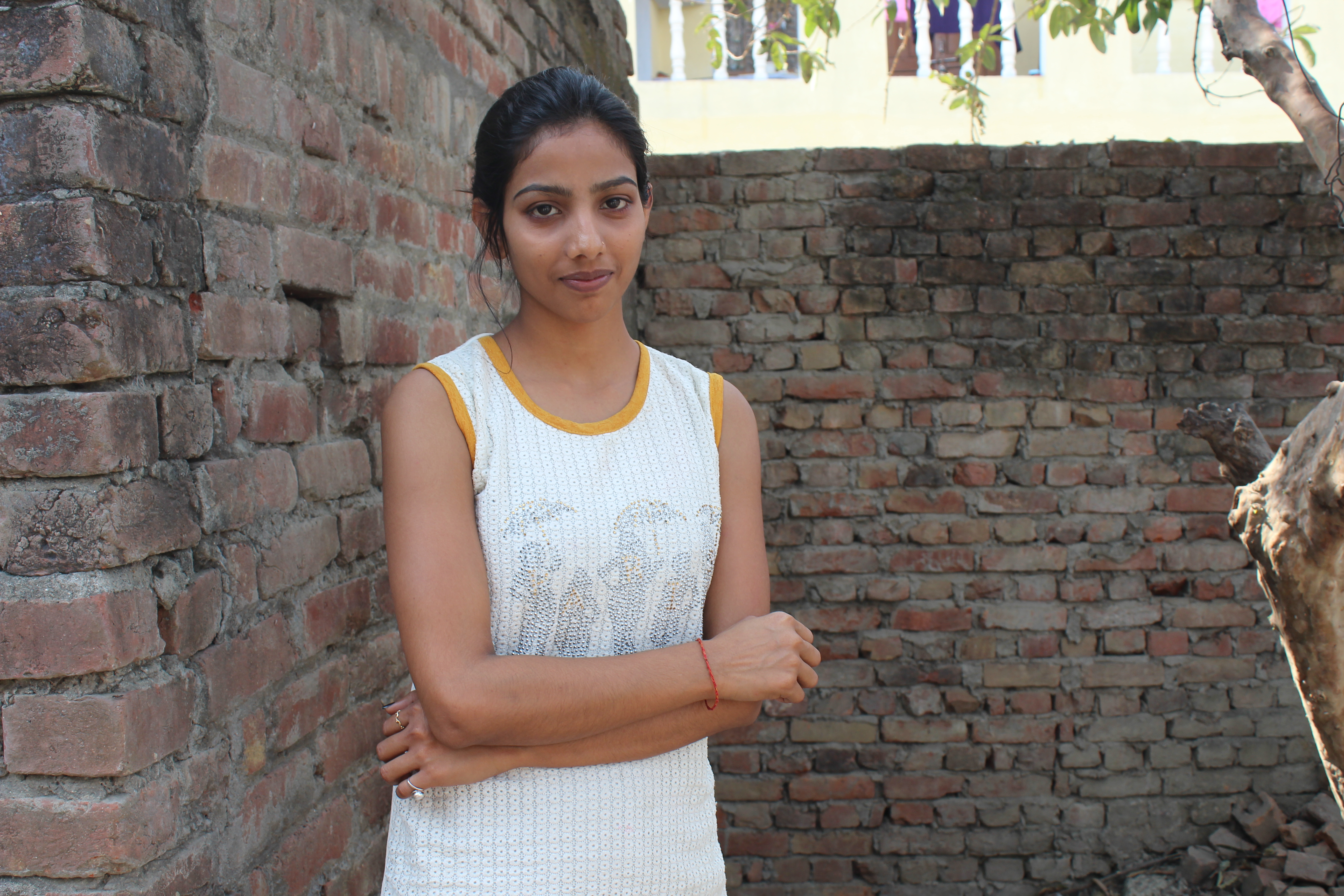
“I was not aware of the compromise,” said Diksha. “Nobody told me or asked me about it.”
Diksha is speaking of the first meeting in Bareilly when Rahul Singh, Rajan Singh and their uncle met with Minister Varma to chalk out the details of the compromise.
“When I heard about it, I was furious. I did not talk to anyone for a few weeks. I just cried,” she said.
The family consoled the young girl, 19 years old at the time, explaining to her that many relatives had even scared her mother saying that anything could happen to her only daughter when she went out alone.
“I don’t want it (the money),” Diksha said, “I wish that not a single penny of that amount should be used for my marriage.”
Fear festered and eventually pulled an unwilling Diksha into the tight distraught circle.
“I went to the meeting at the Shahjahanpur residence of the Minister,” said Diksha. “He kept telling me he did not do it but I did not believe him.”
At this second meeting, the entire family, except for Diksha, signed an affidavit stating that Jagendra Singh had indeed committed suicide.
Upon their return to Khutar, their uncle placed a bag near his sister in law Suman and turned to Rahul and Rajan.
“He said this is for your younger sister, for her wedding,” recollected Rahul. “He said we will conduct her wedding in a grand manner and any further help also the Minister will do.”
Rs 3 million in cash had arrived in Khutar.
Diksha is vehement in her distaste over the whole deal. “I don’t want it (the money),” she said. “I wish that not a single penny of that amount should be used for my marriage.”
Diksha still has nightmares. “I dream someone is following me, catching me and leading me to a fire. I also feel as if I am seeing ghosts and every time I only see they all are trying to cause me harm, trying to kill me. And every time it is Papa who comes to save me. Every time someone is trying to cause me harm in the dream, he is the one to save me and only says one thing – So what if there was nobody to save me, I will always be there to save Rachna,” she says as she blinks back tears.
Another recurring nightmare is based on reality. “Another dream I have often – When I had gone there (hospital), Papa had asked me to give him some water. He said aloud – Rachna give me water. So I went to get him water and over there and I met his doctor.
He dissuaded me from giving him water. He said, his burn injuries are such, water acts like poison, so don’t feed him water. Do you want to kill your own father? I said, of course not, why are you talking like this? If say you say no, I will not give him.
Then I did not give him any water. He kept asking for water. My only regret is, he asked so often for water, in his last breath and I refused to give him, because the doctors said so. This will always remain etched in my mind.
He kept asking me, saying he is extremely thirsty because he said it was burning from inside. He kept saying please give me little, just a little water. And I did not give him any water, with the wish that he will get better soon and my giving water should not deteriorate his condition.
Because once he gets better soon, he can return home and have as much water as he wants.”
UNCERTAIN FUTURE
It was only after at least two personal interactions that the Singhs opened up enough to reveal another fact.
That the Minister they loathed was still in touch with them and continued to help them.
In late March, Rahul Singh fell off his motorbike and fractured his arm. His elder brother Rajan rushed him to the doctor who was not available.
“My brother called the Minister and asked him for help in organising a doctor,” admitted Rahul. “I did not know about this until we went in to meet the doctor. The doctor asked – oh so you are the ones sent by Mantriji (Minister). I asked him later if he had called the Minister for help. He said that he did,” said Rahul.
Rajan is a little unsure as to whether to discuss this aspect of their strange relationship with the Minister. “There was a friend who had cancer and needed admission in SGPGI (hospital) so the Minister helped with that,” he said.
On being pressed as to whether he had asked for help for any member of his family, he said – “Yeah, sometimes we ask. He helps us.”
“He talks to me sometimes, asks about work and asks how we are,” said Rajan. He currently lives in his father’s Shahjahanpur house and works nights as a security guard.
Rahul, who was working in a private telecom firm, resigned in January after Jagendra’s father Sumer Singh passed away due to a heart attack. He now lives in Khutar with his wife, mother, Diksha and Rajan’s family.
With the grandfather’s pension of Rs 18,000 no longer coming in, both brothers are desperate for the once-promised government jobs.
This story by Sandhya Ravishankar was originally published by The Lede on June 21.
Published on June 21, The Lede journalist Sandhya Ravishankar wrote a four-part series that uncovered the true reason why none of Jagendra Singh’s attackers were ever brought to justice. In the first part, The Lede recounted the background that led to Jagendra Singh’s death in June 2015. The second part revealed why his family chose to stay silent. As part of a collaboration in the Green Blood Project, 60 publications across the world featured the story, which took the story from a small town in India’s most populous state and highlighted the dangerous conditions that journalists work under in India.

